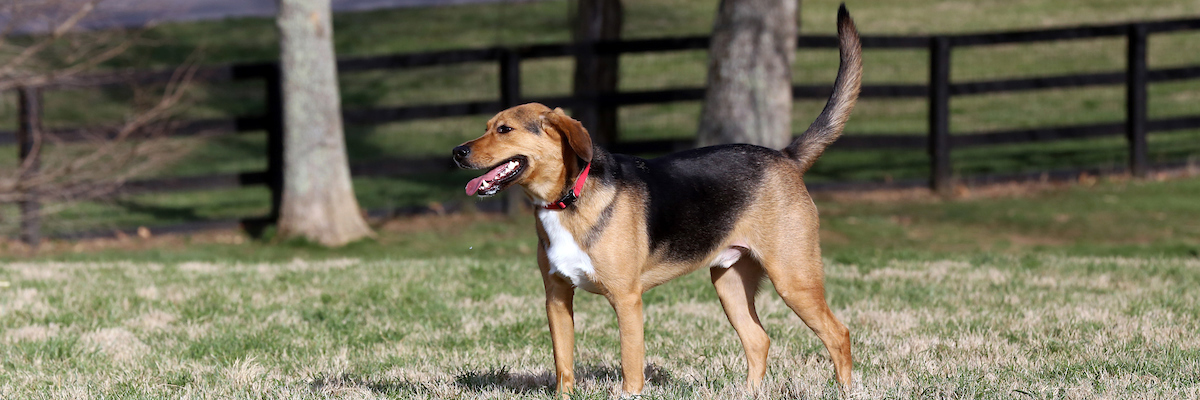Lexington-Fayette Animal Care & Control (LFACC) provides the city's animal care and control services on behalf of LFUCG through an annual contract agreement. Each year, the LFACC shelter receives approximately 5,500 stray, abandoned and relinquished animals every year. The shelter is open 365 days a year to protect the animals of Fayette County and serve the community.
Below is a list of local ordinances with helpful resources and tips. You can also visit, LFACC's official website at lfacc.org
Stray dogs and cats
Stray dogs are held at the LFACC shelter for a minimum of five days and cats for a minimum of three days, in the hopes that their owners will reclaim them.
Lost pets
Owners of lost pets should visit the LFACC shelter as soon as possible to see if their pets have been brought in by a good citizen or rescued by an Animal Control Officer. Understand that we cannot identify your pet over the phone; you must come to LFACC in person to look for your pet. To help identify your pet, bring a color photograph. Also, please bring proof of your pet’s current rabies vaccination, city license and spay/neuter (if applicable).
Fines and other fees can be paid by cash or credit card. If your pet has not already been spayed or neutered at the time of fee payment, you will have the option to have your pet altered for $50 in lieu of paying higher “unaltered redemption” fees.
If your lost pet is not in our care, please utilize LFACC’s online lost and found pet listing in between your visits to the LFACC shelter. This listing, complete with photos, of lost and found Fayette County animals can be found under the “Lost & Found Pets” tab at lfacc.org.
Animal licensing
All dogs and cats must be licensed annually starting at six months of age, and rabies vaccinated at four months of age. Proof of rabies vaccination is required.
- License for an altered (spayed or neutered) dog or cat is $8.
- A license for an unaltered dog or cat is $40. ($25 of this fee goes directly into the LFUCG Spay & Neuter Fund.)
- A license is good for 12 months.
- Dogs and cats must wear their license and rabies tags at all times.
- Assistance dogs are exempt from annual licensing.
- There are three ways to purchase or renew a pet license.
- Veterinarian offices – visit lfacc.org for a complete list of participating offices
- LFACC office – Licensing is available in the LFACC office six days a week. Monday – Saturday noon – 6 p.m.; Closed on Sunday.
- Mail-in license (renewal only) – visit lfacc.org, print and complete one application for each pet. Add $1 handling/postage to the application license fee of $8 or $40. Mail completed application, proof of rabies vaccination, proof of spay/neuter (if applicable) and check or credit card payment (no out-of-county checks accepted) to LFACC.
- Rabies vaccination with license purchase is $10 plus tax.
Kennel license
If you own eight or more dogs, you need to apply for a kennel license through LFACC. The annual license is $135, and all dogs must be current on their rabies vaccinations and city licenses.
Leash law
All dogs in Fayette County must be on a leash, behind a fence or on the dog owner’s property under the owner’s supervision at all times when outside. Dogs cannot run-at-large, even under voice command, and they must wear their current license and rabies tags at all times.
Dog parks
There are six locations in Fayette County where dogs can run off-leash in designated areas: Masterson Station Park, Jacobson Park, Coldstream Park, Wellington Park, Phoenix Park* and Pleasant Ridge Park*. For more information on the city's dog parks, visit lexingtonky.gov/dog-parks.
*Dog pads, not dog parks.
Barking dogs/noisy animals
If you are having a problem with a barking dog or other noisy animals, please consider the following options:
- Talk to your neighbor: Please give your neighbor the benefit of the doubt. In many situations, someone with a noisy dog may not realize that there is a disturbance. Dogs bark for numerous reasons, including loneliness, boredom, other animals, passersby, or because they’re being teased. Doing someone a favor by informing them of the situation first could be the neighborly thing to do!
- The legal process: The Fayette County Attorney’s Office prosecutes criminal cases. When you decide to file a barking dog complaint against your neighbor through their office, you are filing a criminal charge against that person. When the case goes to trial, their office must prove beyond a reasonable doubt that the defendant (neighbor) is guilty of violating the barking dog ordinance. Learn more about filing a barking dog complaint on the County Attorney's website.
Pooper Scooper
Cleaning up after your pet is the law. All pet waste on public or unowned-private land must be sanitarily and properly disposed of in an appropriate trash receptacle. The “Pooper Scooper” ordinance is enforced by the Lexington Police Department.

